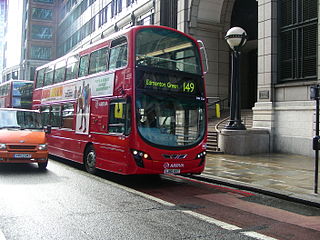Surprise: being 'green' is often bad for the planet

New research shows that eating lettuce and using London buses can be worse than eating meat and driving a Ferrari.
Going green used to be so easy. Sell the petrol car and switch to diesel, biofuel – or better still a hybrid. Buy local cabbage not those expensive packets of asparagus imported from Kenya.
The trouble is, there is increasing evidence that most, if not all, of what we have been told about environmental correctness is either a lie, the result of pernicious marketing, pious feel-goodery (‘virtue signalling’) or just a simple, stupid mistake.
Eating meat is bad for the planet, right? Well, it depends on how you do the sums. A team at Carnegie Mellon University in Pittsburgh calculated the greenhouse emissions created by growing 1000 dietary calories of a number of common foods.
It turns out that lettuce, of all things, is far less "green" than we supposed; in fact, to generate 1000 calories of lettuce farmers need to emit three times the amount of greenhouse gases as producing 1000 calories of bacon.
Organic food? Largely a matter of personal taste, it turns out, there being little real evidence that it is better either for the Earth or for your health.
And food miles? Not a simple calculation. For instance, vegetables grown in warm countries such as Spain or Kenya may generate fewer overall emissions, even taking transportation into account, than the same crops grown in heated greenhouses in the UK.
When it comes to food, going green is far from simple.
Neither is it with transport. Twenty years ago, the insane decision was made, across Europe, to promote the use of diesel over gasoline, on the grounds that diesel produces slightly less CO2 when burned than petrol. The fact that diesel is a filthy fuel that churns carcinogens into the air by the bucketload was quietly ignored.
The result? Paris is now so polluted that half the cars are banned from the roads on some summer days, and Oxford Street is now one of the filthiest thoroughfares on the planet. In fact, if London’s diesel buses and taxis were to be replaced by a fleet of Ferraris, the capital’s air quality would shoot up and hundreds of lives would be saved every year.
Biofuels – synthetic spirits derived from plants – are even worse. Intelligent greens now realize that turning over millions of acres of prime farmland to grow petrol instead of food was one of the biggest mistakes in green history.
Hybrid cars? They look green, but their claimed economy figures are science fiction; in fact they make Star Wars look like an accountancy textbook. Add in the "embedded carbon" in their expensive batteries and increased transportation costs to bring all the bits together and the case for them melts away into the tarmac.
One of the great totems of the Green movement is its opposition to nuclear power. Yet it is now quietly acknowledged that the global nuclear turn-off, triggered by the Chernobyl disaster in 1986, has been a planetary disaster, partly responsible for the global warming pickle in which we find ourselves today.
After the Fukushima accident in Japan (which killed no one) Germany closed its civilian nuclear program. The result? Tens of millions of tonnes of climate-changing carbon poured into the atmosphere as the country switched from nukes to to coal.
But to the holier-than-thou brigade, boring old facts and figures do not matter. As they load their I’m Not A Plastic Bag bags of organic, locally-sourced shrubbery into their Toyota Prius, the fact that their environmental awareness says much more about them than about the Earth is a truth so inconvenient it can safely be ignored.
References
Telegraph - By Michael Hanlon - 18 Dec 2015
Vegetarian and “Healthy” Diets Could Be More Harmful to the Environment